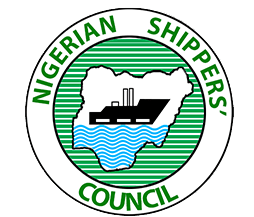Nigerian Shippers Council (NSC) has said that several interferences of cargoes by the Police at the seaports have disrupted cargo dwell time, increasing demurrage/storage charges payable by consignees.
It noted that this has ultimately led to an increase in the cost of doing business in Nigerian ports.
The Executive Secretary of the council, Dr Pius Akutah, disclosed this on Wednesday in Lagos at a one-day training programme with the theme:
“Facilitating Port Efficiency: The Strategic Role of the Police,” organised in collaboration between NSC and the Nigeria Police, Maritime Police Command.
He noted that several reports that were brought to the attention of NSC by stakeholders pointed to incessant interference in the cargo clearance processes, placement of detention orders on duly cleared cargoes, thereby barring their exit from the port terminals.
Another issue, he noted, was the intimidation of personnel of shipping line agencies and terminals, as Police officers usually claimed they were acting on intelligence reports.
Akutah, who was represented by the council’s Director, Regulatory Services Department, Mrs. Margaret Ogbonnah explained that NSC had on several occasions carried out investigations on the matter to ascertain the veracity or otherwise of the claims, adsing that it was in most cases confirmed that these practices were carried out by various police formations without the knowledge of the Assistant Inspector General of Police.
He noted: “This development, therefore, led to robust engagement by the council with the IG of Police to put a stop to these practices and to ensure adherence to process in matters of container detention and other port-related issues.
As a result, the AIG, Maritime Police Command, notified key stakeholders vide a letter dated 11th December, 2018, to communicate to stakeholders the decision to collectively streamline the plethora of letters being issued by various unauthorised persons on behalf of the Police.
“He also directed all key stakeholders to disregard any correspondence without the signature of the AIG or officers nominated by him.
“Together, we have achieved quite a lot, although we cannot rest on the past achievements because some of these infractions still occur either deliberately or due to ignorance on the part of the officers involved. Our main focus has to be firmly on attaining international best practices.
In essence, at the meeting between the NSC and the Inspector General of Police, the issue of capacity building for officers of the maritime police was discussed in order to enlighten and educate them on the nitty-gritty of port operations and the role of the police.”
Also, the Assistant Inspector General of Police, Chinedu Oko, represented by Assistant Commissioner of Police Administration, Ports Authority Police (Western) Command, Olufikayo Fawole, explained the Maritime Police, as a specialised arm of the Nigeria Police Force, plays a critical role in securing maritime assets, mitigating threats, combating cargo-related crimes, preventing pilferage and vandalism, and ensuring the smooth flow of legitimate trade.
He noted: ” Our mandate is not just to enforce the law but also to protect the economic lifeblood of our nation. Nigeria’s competitiveness in the global maritime economy is influenced greatly by the level of safety, predictability, and confidence that stakeholders experience at our ports.
“This is why continuous training is essential. The operational landscape is evolving, new technologies, changing criminal patterns, multimodal logistics, and international compliance requirements all demand that our officers become smarter, more proactive, better informed, and better equipped.
“Through this programme, participants will gain valuable insights into modern port operations, cargo handling procedures, supply-chain vulnerabilities, and best practices for promoting trade facilitation while maintaining robust security.
‘As we build a more secure port system, we also contribute to national prosperity, economic stability, and Nigeria’s overall competitiveness in global trade.”
















